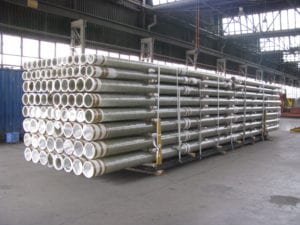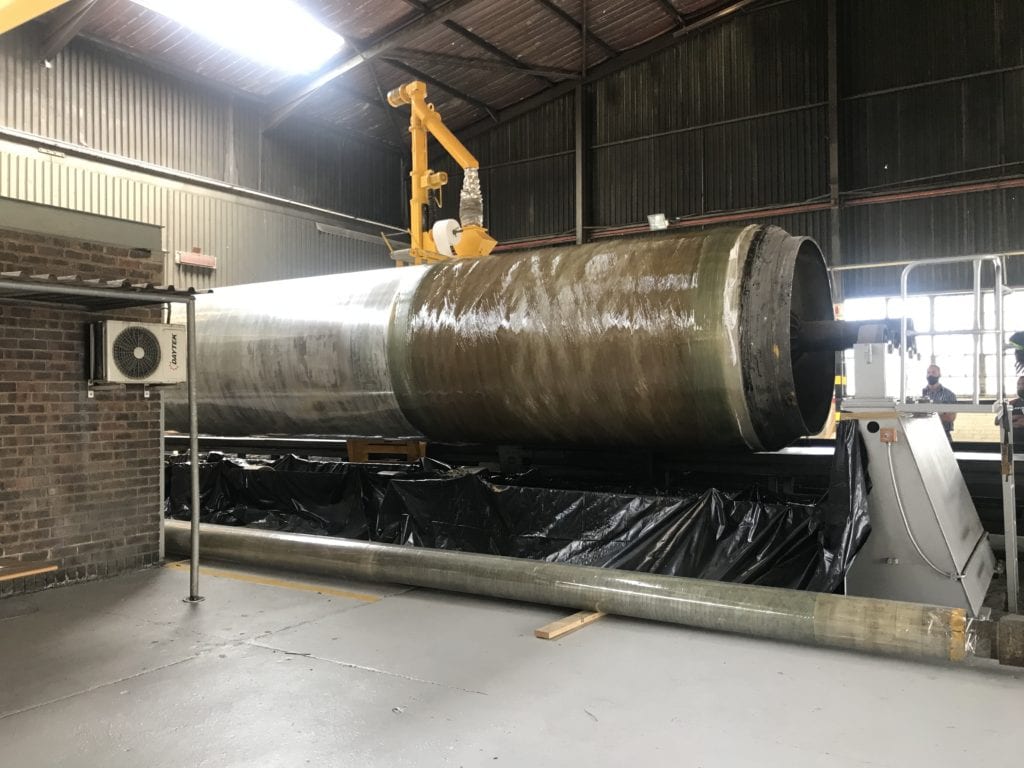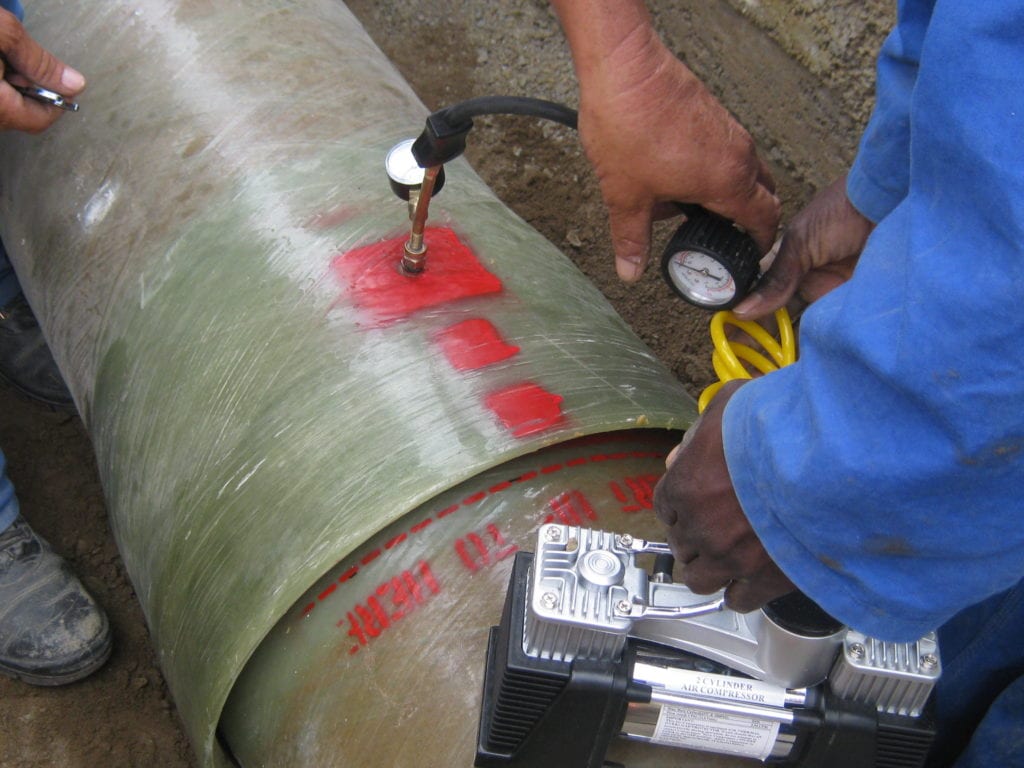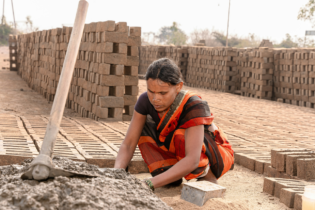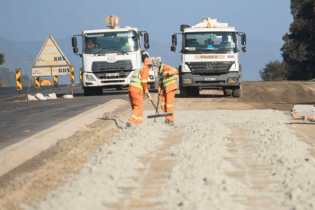Flowtite South Africa is a licensee within the global Flowtite network, which is represented on all five continents. Flowtite South Africa is based in Germiston, Gauteng, and manufactures Glass Reinforced Polyester (GRP) pipes and fittings, with a branch in Cape Town and about 150 staff members.
The vision is for Flowtite GRP pipes to be a household brand in the piping market within sub- Saharan Africa for civil, mining, agricultural and industrial applications, and Flowtite South Africa urges the market to Generally Accept and Generally Approve GRP. Flowtite South Africa’s mission is to remain at the cutting edge of technological development in the piping market. Foremost, this entails remaining devoted to high quality standards, excellent customer service, reliability, accountability and transparency in order to offer superior value to customers’ infrastructure requirements. Flowtite South Africa is committed to creating an enduring benefit for the communities and its customers in the areas in which the company operates. Expert experience and fit-for-purpose technologies are essential for rebuilding South Africa’s infrastructure economy. Mr Bantu Mselana, CEO, Flowtite South Africa, says this makes the business case for GRP pipe products even more compelling as a preferred solution in meeting the country’s water and wastewater targets. Strong market gains Since the launch of the Flowtite brand in South Africa during 2018, strong gains have been made in a market traditionally dominated by other pipe materials. However, GRP is asserting its dominance in certain key segments and gaining market share over its competitorsin the domestic and export markets, ensuring that it is increasing its footprint in the piping sector. Historically, one of the few segments where GRP could not compete was in smaller diameters up to 300 mm and the 2.5 m to 3 m diameter range. All that has changed, with Flowtite now extending its diameter range pipes from DN 150 mm to DN 3 000 mm internal diameter (ID) with its new Vectus range, which is produced with at least 98% local content. The Vectus range uses the bell and spigot joining method, which expands the market range to include uses in the industrial and mining market. This allows Flowtite South Africa to expand its market offerings and opens the doors to additional areas in the civil market to provide pipes for the reticulation segment, which uses the smaller diameter pipes, not only servicing the bulk water and bulk sewer market. Invested in local manufacturing “The launch of Flowtite South Africa underscores our confidence and support in achieving South Africa’s micro- and macro-economic objectives,” says Mselana. “As an investor, we’ve taken a long-term position and remain committed to playing our part in sustaining the local manufacturing sector – a vital economic enabler – and one that in our case supports infrastructure growth.” Flowtite says the localisation strategy adopted by the Department of Trade Industry and Competition as well as National Treasury, for all designated pipe products, is welcomed. However, the general view from industry is that further regulations should be imposed on imported pipes to promote further investment and growth in the sector and the local manufacturing base. “The Covid-19 lockdowns and border closures definitely tested South Africa’s internal manufacturing capabilities. In other words, it exposed the extent of our reliance on imports,” Mselana explains. “The upside for us is that we’d already upgraded our capacities and capabilities long before Covid-19, so we were able to continue fulfilling a crucial and essential service during 2020.”
“Going forward, our strategy is to build additional capacity. This includes a potential new product line towards the end of 2021 as we identify opportunities in the natural gas market,” he continues. “We will also be focusing on further cross-border opportunities where we’ve already successfully supplied solutions for projects in the SADC region.”
GRP roll-out Since inception, Flowtite South Africa has had a three-pronged approach to its GRP implementation strategy, namely creating awareness, selling the value, and being responsive in terms of customer service. A major success factor is the proven value of Flowtite GRP, based on local and international long-term case studies on life-cycle costing and return on investment. Simply put, once GRP systems are installed, minimal if any maintenance is required over their envisaged life, which can exceed 150 years. “The strength, longevity and life-cycle cost benefits of GRP differentiate it from other products in the bulk water and sewer market, giving GRP an advantage and a superior value proposition when compared to other materials” says Mselana. “GRP has been a mainstay in industry since its initial development in the 1960s and has a long local application history that exceeds50 years. Over time, though, there has been some loss of institutional memory as well as existing misconceptions about GRP. However, through our concerted marketing efforts and via our sales engineers on the ground nationally, we can confidently say that Flowtite GRP now sits centre stage alongside its other pipe competitors,” Mselana continues. “Times are tougher, and there’s a lot less money available for the maintenance and construction of new infrastructure. This makes life-cycle costing decisions even more important, and that hinges on the selection of the right products and technologies. Local and international Flowtite case studies from around the globe prove that GRP continues to provide a class-leading return on investment. Our focus at Flowtite South Africa is to combine this with world-class service and competitive pricing,” adds Mselana. Bridge the infrastructure skills gap Part of the critical challenge facing the water sector in the sub-Saharan region is the depletion of skills, through an ageing workforce, as well as poor skills transfer and employee retention to maintain the infrastructure. This results in a lack of proper maintenance and upkeep of the existing infrastructure. As part of its offering, Flowtite South Africa’s technical teams work together with government departments, municipalities, consulting engineers and contractors to augment the skills gap by offering technical support and training to ensure optimal pipeline installation and maintenance. Then, as part of Flowtite’s contribution to the broader national objectives of job creation and skills development, Flowtite South Africa offers certified training to communities and SMMEs. The latter are either subcontracted or employed by the main contractor or municipality on local infrastructure projects. Through this certified training, they can gain the skills to complete the work and be marketable within the sector going forward, ensuring that they remain sustainable in the marketplace.

